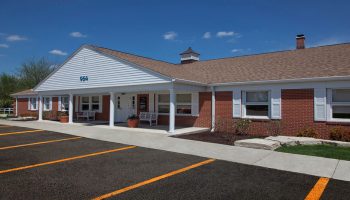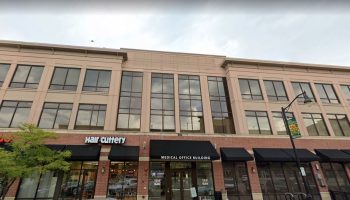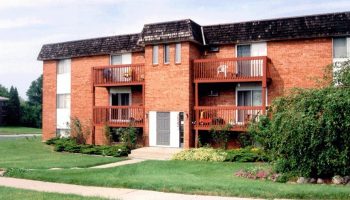EL Rincon Community Clinic
About EL Rincon Community Clinic
El Rincon Community Clinic provides culturally competent behavioral health services including substance use treatment, prevention and education. They also offer counseling, violence prevention and mental health care including case management.
The clinic has been providing compassionate care that fosters the general wellbeing of communities across Chicagoland for over 50 years. This center in West Grand Avenue provides medication assisted treatment (MAT), counseling, and case management services.
These outpatient programs focus on equipping you with the right tools to better understand addiction and define your path to recovery. They prioritize personalized care through comprehensive intake assessments. Services are bilingual and culturally relevant to the needs of the clients.
Their MAT program uses methadone to help you manage physical withdrawal symptoms and curb cravings. The program includes medical monitoring or medication management by staff physicians to ensure that withdrawal is safe and effective.
Overcoming opioid addiction goes beyond taking care of this physical dependency though. You also need to tackle the psychological aspect of things. That way, you’ll heal not just the mind but the soul as well. Their MAT program thus includes counseling in group and individual settings. In between counseling sessions, you might want to unwind in local greenspaces like Humboldt Park, which isn’t too far away. Harding Park is smaller, but closer.
Counseling offers you the emotional and psychological support to navigate recovery challenges. You can dig into the underlying causes of your opioid use and create strong coping strategies to prevent relapse.
The program also involves toxicology testing to monitor compliance with treatment, assess progress and build accountability. As you progress, they may assist you with finding affordable housing, job opportunities, and even educational programs via case management. It’s 360-degree care that takes care of your general well being.
The facility accepts sliding fee scale payment options for this program. This lets you pay based on your income to make services more affordable.
This program is available at the Rafael “Paloma” Rios Center on West Grand Ave in Chicago, Illinois. The location is very accessible using public and private transportation. CTA bus route 65 connects directly to the clinic. Those coming from nearby cities like Evanston and Oak Park may take less time if they’re driving.
| Levels of Care | Detox Service Setting | Programs | Payment Options | Medications Offered |
|---|---|---|---|---|
|
Inpatient and residential programs provide round-the-clock medical and emotional support as you live at the treatment facility. This level of care may be recommended if you have severe addictions or mental health conditions since it removes outside distractions and allows you to focus solely on therapy. |
In outpatient therapy, you’ll attend therapy sessions several times each week while living at home. This is ideal if you have a strong support system and a lower risk of relapse. Outpatient treatment offers flexibility to maintain work, school or family obligations. |
Aftercare programs provide ongoing support after you complete a rehab program. They may include several components to help you maintain sobriety including therapy, community support groups and relapse prevention strategies. This gives you a network of resources as you reintegrate into your daily life. |
||
|
Outpatient detox gives you access to medically supervised withdrawal services while still allowing you to live at home. You’ll attend a clinic for treatment and monitoring. This flexible option is suitable for those with mild to moderate withdrawal symptoms who have strong support systems. |
Medication assisted treatment combines medication and counseling to manage withdrawal and reduce cravings for opioid and alcohol addiction. Medications may include methadone, buprenorphine or naltrexone. MAT is tailored to your needs so you can actively participate in your treatment journey. |
|||
|
Teen (13 - 18)
|
Adult programs address the substance use and life challenges specific to adults. Therapists can deliver sessions in individual, group and family settings. Services often include job support and life skills training in a structured environment. |
Young adult programs are designed for individuals who are transitioning into adulthood. Topics of discussion typically include identity, independence and peer relationships. Providers may also offer life skills training and career support. |
Women's programs offer a safe and supportive space to focus on gender specific issues such as trauma, family roles and mental health conditions. Therapists tailor the sessions to address women's needs and foster empowerment in a healing and nurturing environment. |
Men's programs address substance use while also considering the social pressures, family roles and mental health concerns that are specific to men. You’ll learn healthy coping mechanisms as you build emotional resilience and develop communication skills. |
|
Self Pay
|
Medicaid
|
|||
|
Methadone
|
Levels of Care
Inpatient and residential programs provide round-the-clock medical and emotional support as you live at the treatment facility. This level of care may be recommended if you have severe addictions or mental health conditions since it removes outside distractions and allows you to focus solely on therapy.
In outpatient therapy, you’ll attend therapy sessions several times each week while living at home. This is ideal if you have a strong support system and a lower risk of relapse. Outpatient treatment offers flexibility to maintain work, school or family obligations.
Aftercare programs provide ongoing support after you complete a rehab program. They may include several components to help you maintain sobriety including therapy, community support groups and relapse prevention strategies. This gives you a network of resources as you reintegrate into your daily life.
Detox Service Setting
Outpatient detox gives you access to medically supervised withdrawal services while still allowing you to live at home. You’ll attend a clinic for treatment and monitoring. This flexible option is suitable for those with mild to moderate withdrawal symptoms who have strong support systems.
Medication assisted treatment combines medication and counseling to manage withdrawal and reduce cravings for opioid and alcohol addiction. Medications may include methadone, buprenorphine or naltrexone. MAT is tailored to your needs so you can actively participate in your treatment journey.
Programs
Adult programs address the substance use and life challenges specific to adults. Therapists can deliver sessions in individual, group and family settings. Services often include job support and life skills training in a structured environment.
Young adult programs are designed for individuals who are transitioning into adulthood. Topics of discussion typically include identity, independence and peer relationships. Providers may also offer life skills training and career support.
Women's programs offer a safe and supportive space to focus on gender specific issues such as trauma, family roles and mental health conditions. Therapists tailor the sessions to address women's needs and foster empowerment in a healing and nurturing environment.
Men's programs address substance use while also considering the social pressures, family roles and mental health concerns that are specific to men. You’ll learn healthy coping mechanisms as you build emotional resilience and develop communication skills.
Medications Offered
Contact
- Monday 6AM - 1PM
- Tuesday 6AM - 1PM
- Wednesday 6AM - 1PM
- Thursday 6AM - 1PM
- Friday 6AM - 1PM
- Saturday 8AM - 11AM
- Sunday Closed

Chika Uchendu is a multi-niche and seasoned SEO writer with expertise in personal finance, technology and health. He’s had over 10 years of experience creating impactful content that resonates with diverse audiences. His journalism and digital marketing background enables him to combine data-driven analysis with engaging storytelling. This helps drive engagement and grants target audiences access to valuable information.
Chika has worked for Benzinga, Motley Fool, Webopedia and many other popular online media outlets on a freelance and contractual basis. He is using his voice to drive awareness and meaningful change among people dealing with the pandemic of substance use disorder. Chika is an ambivert who enjoys sports, hiking, reading and video gaming.

Peter W.Y. Lee is a historian with a focus in American Cold War culture. He has examined how popular culture has served as a coping mechanism for the challenges and changes impacting American society throughout the twentieth century.




